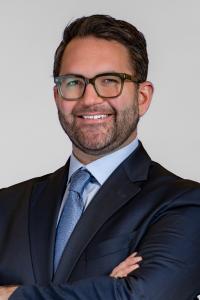
World Spine Day: Columbia Neurosurgery Leads Innovation in Spine Research and Care
Celebrating the science behind better spine health on October 16.
On World Spine Day, Columbia Neurosurgery celebrates the incredible structure that supports us all — and the groundbreaking research that helps keep it healthy.
Columbia’s spine neurosurgeons are internationally recognized for advancing the diagnosis and treatment of spinal disorders through innovative techniques, compassionate care, and cutting-edge research. From motion-preserving scoliosis surgery to minimally invasive procedures that shorten recovery times, their discoveries are helping patients live fuller, pain-free lives.
Research That Translates to Better Care
At Columbia Neurosurgery, research isn’t just about publishing papers — it’s about improving patient outcomes every day. Our spine surgeons are leading studies that directly translate into safer surgeries, faster recoveries, and better long-term results for both children and adults.
- Dr. Christopher Mandigo, Dr. Peter Angevine, and Dr. Justin Neira collaborated on a study of a surgeon-delivered nerve block technique that significantly reduced postoperative pain and opioid use after spine surgery — a simple, practical innovation that’s helping patients recover more comfortably.
- Dr. Peter Angevine, is exploring how factors like body weight affect surgical outcomes, including the relationship between obesity and lumbar spondylolisthesis treatment. His research helps personalize spine surgery planning to each patient’s health profile
- Dr. Andrew Chan and Dr. Dean Chou focus on improving outcomes after spine surgery by analyzing national patient data through the Quality Outcomes Database. Their studies identify which surgical techniques lead to better recovery and long-term quality of life for patients with cervical spine conditions.
- Dr. Taemin Oh is advancing motion-preserving alternatives to spinal fusion, such as vertebral body tethering (VBT), giving children with scoliosis the chance to maintain spinal flexibility while achieving correction.
- Dr. Paul McCormick continues to lead research in spinal cord and intradural tumor management, refining surgical techniques that remove tumors safely while preserving neurological function.
- Dr. Dean Chou, Dr. Andrew Chan, and Dr. Taemin Oh are committed to advancing minimally invasive spine surgery, developing approaches that reduce incision size, minimize tissue disruption, and help patients return to normal activity faster.
- Dr. Justin Neira contributes to collaborative research on spinal anatomy and muscle health, including imaging studies linking paraspinal muscle degeneration to spinal instability — findings that inform surgical planning and rehabilitation strategies.
- Drs. Peter Angevine, Christopher Mandigo, Justin Neira, Paul McCormick, and Andrew Chan collaborated on a recent study to understand how weakened or degenerated back muscles contribute to spinal slippage which allows surgeons to plan more effective, less invasive procedures — and helps patients target the right rehabilitation to prevent future problems.
Together, these efforts reflect Columbia Neurosurgery’s mission: combining innovation, evidence, and compassion to provide the safest and most effective spine care possible.
Comprehensive Spine Care, Backed by Research
At Columbia Neurosurgery’s Spine Disorders Center, patients receive expert care for the full range of spinal conditions — from herniated discs and spinal deformities to tumors and traumatic injuries. Columbia’s multidisciplinary team combines world-class surgical skill with compassionate, personalized treatment, ensuring every patient receives the right approach for their condition.
Celebrating World Spine Day — October 16
World Spine Day is a reminder of the spine’s essential role in our health and mobility — and of the physicians and scientists working to protect it. Columbia’s spine neurosurgeons are not only caring for patients today, but also driving discoveries that will define the future of spinal surgery.
Learn more about Columbia Neurosurgery’s spine specialists and their research at neurosurgery.columbia.edu/patient-care/specialties/spine-disorders.
References
Selected Research and Publications
- Surgeon-Delivered Nerve Block for Reduction of Perioperative Pain and Opioid Use After Lumbosacral Spine Surgery — Read on PMC
- Preoperative Obesity and Surgery for Lumbar Spondylolisthesis — Read on JNS
- Quantitative Analysis of Relationship Between Paraspinal Muscle Parameters and Degree of Degenerative Lumbar Spondylolisthesis — PubMed
- Cervical Laminoplasty vs. Laminectomy and Fusion: 24-Month Outcomes — PubMed
- Predictors of Best 24-Month Outcomes in Cervical Spondylotic Myelopathy — JNS
- Results of a Retrospective FDA IDE Study for Anterior Vertebral Body Tethering in Adolescent Idiopathic Scoliosis (3- to 10-Year Follow-Up) — JBJS Open Access
- Changing Complication Trends After Anterior Vertebral Body Tethering: 10-Year Experience — ResearchGate
- Relationship Between Tumor Location and Extent of Resection in Myxopapillary Ependymoma — Neurosurgery Journal





